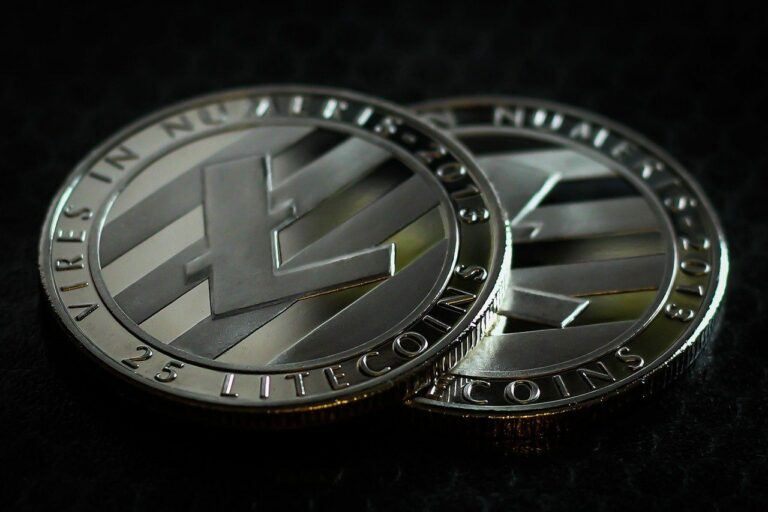Litecoin (LTC), a proof-of-work (PoW)-based peer-to-peer (P2P) cryptocurrency which uses the Scrypt mining algorithm, instead of Bitcoin’s (BTC) SHA-256 algorithm, has been criticized for not having a legitimate use case.
Earlier this month, Michael Novogratz, the founder of Galaxy Digital, a full-service digital asset merchant bank, argued that LTC’s recent price surge did not make sense. Novogratz, a former partner at Goldman Sachs, had compared the market capitalization of BTC to that of LTC and noted that LTC was overvalued as he thought its market cap was unjustifiably high, At the time, it stood at about 6% of BTC’s overall market share.
LTC, A “Glorified Testnet” For BTC?
According to Novogratz, the Litecoin network is only “a glorified testnet for BTC” and it does not have a unique value proposition. However, a Redditor with username iDONATELLO posted a detailed explanation on why he believes Litecoin is “useful.” The post claims Litecoin is “the second most secure [cryptocurrency platform] behind Bitcoin.”
The Redditor believes that “high levels of mining decentralization” and Litecoin’s use of the Scrypt algorithm are “the ultimate reason” why the LTC network is able to maintain a very high level of security. iDONATELLO wrote:
[By using] a different algorithm than Bitcoin (SHA256), [the Litecoin network effectively] prevents Bitcoin miners from attacking the Litecoin [blockchain.] Litecoin [also] has the most hash power [when compared to all] other Scrypt coins. This makes it very very difficult to attack Litecoin. [The same argument] cannot be [made] for other Proof of Work coins, [with the exception] of Bitcoin.
$99 Million LTC Transaction Settled In Minutes, For Only $0.40
In addition to providing robust security, LTC transactions can be settled fairly quickly and also in a cost-effective manner. The user noted that “the average transaction fees for a Litecoin transaction is 4 cents and about 2.5 – 5 minutes for a transaction to be considered confirmed.”
Notably, iDONATELLO pointed out that an LTC transaction worth around $99 million was conducted and its associated transaction fee was around $0.40, while its confirmation time was approximately 2.5 minutes.
The Redditor also wrote that Litecoin’s integration of the Lightning Network (LN) protocol could potentially lead to even lower transaction fees and faster transaction settlement times. He added that “much of the criticism of Litecoin is [centered around] it becoming useless since Bitcoin will use LN to increase speed and lower fees.”
However, this argument may not be valid because it doesn’t take into consideration that Litecoin may also “benefit from LN.” According to iDONATELLO:
Naturally, Litecoin is the cheapest and fastest on ramp to Lightning Network. What's really cool about the LN though is the compatibility with the two coins. With atomic swaps, you can swap Bitcoin into Litecoin and make payments much quicker than with Bitcoin alone.
“Bitcoin Is Your Savings Account, Litecoin Is Your Spending Account”
He continued:
The way I see it, Bitcoin is your savings account and Litecoin is a spending account. This is not to say Litecoin is not a good store of value, but Bitcoin is more scarce and more secure, making it a stronger store of value to Litecoin, which is more suited for making payments.
The user further noted that both Bitcoin and Litecoin benefit from the Lindy Effect. He explained:
The Lindy Effect is a theory that the future life expectancy of some non-perishable things like a technology or an idea is proportional to their current age, so that every additional period of survival implies a longer remaining life expectancy.
Lindy Effect And Network Effect
Per the Redditor:
[The Lindy Effect] applies to both Litecoin and Bitcoin. They are the two oldest coins, genesis blocks created in 2011 and 2009 respectively. Both have survived the test of time, creating more confidence that [their networks] will continue to survive into the future.
Going on to mention what network effect means, the Reddit user quoted Wikipedia as follows:
A network effect (also called network externality or demand-side economies of scale) is the effect described in economics and business that an additional user of a good or service has on the value of that product to others. When a network effect is present, the value of a product or service increases according to the number of others using it.
“What this means,” iDONATELLO wrote, is “as the user base/community [of a decentralized cryptocurrency platform] continues to grow, it becomes easier for it grow further. Litecoin has grown a massive community over its 7 and half year existence, [remaining] a top crypto since the beginning, making its future growth easier” and sustainable.








